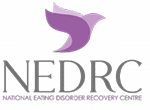People with binge eating disorder repeatedly and uncontrollably consume large amounts of food. Guilt, shame, and distress builds. Binge eating disorder can also result in excessive weight gain over time, adding to body dissatisfaction which can perpetuate a cycle of yo-yo dieting. Efforts at dieting often end with another binge eating episode, and the cycle and distress continue.
Recovery Breaks The Binge Eating Cycle
Binge eating disorder typically involves excessive food intake while feeling a loss of control with food. Binge eating behaviors may be experienced as comforting or soothing negative emotions, yet the “comfort” does not last. People with binge eating disorder often swing to the other extreme and begin highly restrictive diets, which often ends in bingeing again—and more negative feelings. It’s more than yo-yo dieting, however, it is an eating disorder.
To compound the situation, a diagnosis of binge eating disorder may be accompanied by other mental health conditions such as depression and anxiety. Binge eating disorder may also contribute to physical conditions, such as high blood pressure and cholesterol levels, cardiovascular disease, and Type 2 diabetes. Binge eating disorder can affect anyone at any weight, size or shape, age, or gender.
At NEDRC, we understand the physical and emotional strain of binge eating disorder. We’re here to help with personalised treatment programs that free you or your loved one from its ravaging ups and downs, paving the way to a more peaceful relationship with food and self.
Binge Eating Disorder Warning Signs
A combination of risk factors may cause binge eating, such as family history, genetics, dieting, related psychological conditions, and substance abuse, but no single factor causes binge eating. Some indications include:
- Repeated and frequent excessive food consumption without hunger
- Using food to cope with negative emotions, but feeling distressed, disgusted, guilty, or depressed instead
- No compensatory behaviors to “make up” for the calorie intake, such as purging or over-exercise
- Feelings of loss of control, self-loathing, depression, anxiety, shame
- Insomnia, joint or muscle pain, and/or headaches
- Menstrual problems
- Suicidal thoughts
Physical Effects of Binge Eating
Binge eating is cyclical, rotating from binge eating episodes to restrictive dieting that ultimately leads an individual back to bingeing. Binge eating is the most common type of eating disorder in the United States, despite being lesser known than anorexia and bulimia. Although binge eating lacks the compensatory behaviors that characterize other eating disorders, it is equally as serious. Binge eating is not a choice, a phase, or a lack of willpower. Binge eating can affect anyone, regardless of age, race, gender, or any other demographic categorization. It is a complex, serious mental illness that requires professional treatment. While those struggling with binge eating are often at a higher weight than average, this is not always the case. The more frequent bingeing episodes are, the more severe the illness becomes. As bingeing increases, individuals may begin to experience physical symptoms that negatively impact their life. While these symptoms are severe, if treated promptly, they can be reversed.
Dermatological Effects
It’s common for individuals suffering from binge eating disorder to consume copious amounts of sweets and non-nutritious foods. The restrictive dieting following a binge may also contribute to an individual not meeting their body’s nutritional needs. This low caloric intake (from dieting) and lack of nutrient consumption (from both dieting and bingeing) can cause dry skin and may cause hair to become brittle and fall out. Binge eating, specifically sweets and dairy products, may also lead to an increase in facial acne.
Gastrointestinal Effects
Those who engage in frequent bingeing episodes commonly experience a variety of gastrointestinal problems. Following a bingeing episode, individuals may feel uncomfortably full and/or sick to their stomach. They may experience bloating, abdominal pain, and nausea. Binge eating overloads a person’s system with a flood of calories, sugar, fat and/or carbs, which results in the body using a large amount of energy to digest the food, which may result in low energy, sleepiness, and sluggishness.
Eating large amounts of food in a short period of time also may result in acid reflux, cramping, heartburn, and diarrhea. Repeated consumption of large amounts of food may cause long-term effects, including “gastric dilation and gastric perforation,” where the stomach may become so full that it can rupture (Fukudo, Sato, 2015). Binge eating may also cause constipation and irritable bowel syndrome, where people experience general, chronic stomach discomfort, diarrhea, and constipation.
Endocrine System Effects
Binge eating disorder may cause individuals to have hypertension (high blood pressure). Common risk factors of high blood pressure include being overweight and having diabetes, conditions which are sometimes seen in those suffering from binge eating—although it is important to note not all individuals struggling with binge eating live in larger bodies.
Treatment Options
The exact physical effects of binge eating disorder are still somewhat unknown, as eating disorder studies and research often focus specifically on anorexia and bulimia. That being said, recent research is geared more towards understanding the effects of binge eating disorder and why certain individuals are prone to developing this type of eating disorder. Like every other eating disorder, it is essential that those suffering from binge eating get help and treatment as early as possible. Treatment will depend on the severity of the eating disorder, but often necessitates a therapist and a dietitian to get at the root causes of the client’s binge eating.
Recovery is Possible
Eating disorders are treatable. With proper care, individuals can experience full recovery and return to a normal life. If you or a loved one are struggling with disordered eating, reach out to NEDRC today.

